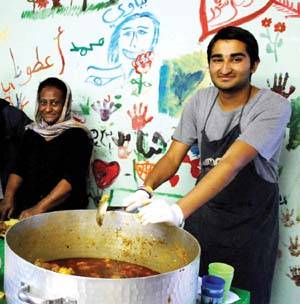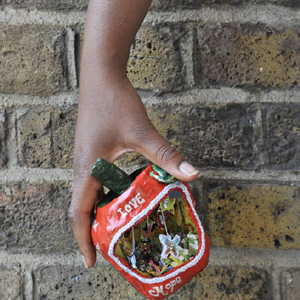This article is a preview from the Autumn 2016 edition of New Humanist. You can find out more and subscribe here.
Our society is positioned against collectivism. To succeed we are expected to work alone, with no assistance (and conveniently hide any marital or family support that buoys us). The expectation of competitiveness is diametrically opposed to collective victories, or collective failures. But we have to start thinking about the collective in order to dismantle racial injustice. It is, after all, a collective atrocity, one which you are implicated in even if you’re not directly affected by it. Racism is never an isolated incident. It serves a collective purpose: to concentrate power in the hands of some at the expense of others. To really dismantle it, we must think not just of ourselves and our immediate family, but of ourselves as part as something bigger.
If you’re not white, you can’t avoid this. As much as you may wish to distance yourself from your not-white-ness, there is no denying that historically, atrocities have been committed against people who look like you, simply because they look like you. You may not have personally lived through the sharp end of those atrocities, but you live with the legacy of them.
“Intergenerational trauma”, a phrase coined to describe the pain endured by indigenous Canadians, articulates the consequences of these scars on humanity. It is a collective response to a collective injustice. It’s defined by feelings of displacement, a loss of culture, and the impact of ongoing discrimination on health and life expectancy.
When Scottish-born author Cal Flyn discovered that an ancestor was a major player in the violent colonisation of Australia, she took the time to explore the flip side of intergenerational trauma: intergenerational guilt. Her relative Angus McMillan has become known as “the butcher of Gippsland” because of the actions he instigated against Australia’s native Gunai tribe. The Indigenous Australian people were almost completely slaughtered for the advancement of European interests.
In June, Cal and I discussed the book that grew out of her research, Thicker than Water, at New Humanist’s summer launch party. In writing her book, it’s clear that Cal struggles with the weight of responsibility. And although she never writes that she feels directly guilty for the actions of her ancestor, she visits Gippsland to meet with Gunai descendants, excruciatingly aware of what both she and they represent. Her family secret didn’t just affect her immediate relatives, it affected an entire country.
Intergenerational guilt is, in some forms, progress. Acknowledging the injustices of the past is instrumental to addressing their legacies. It is certainly more useful than belligerent denial of the facts (too often the knee-jerk reaction). In the stages of coming to terms with historical atrocities, guilt always seems to come after acceptance. But wallowing in guilt after acknowledgement is a roadblock to progress.
The work Cal did to upend the image of colonisation in Australia is progress in itself. It’s not the job of writers to come up with policy proposals that address extreme racial disparities born from legacies of injustice. But in the age of Black Lives Matter, the problem of intergenerational white guilt couldn’t be more urgent. Upon learning about atrocities committed in their name – whether for safety or prosperity – white people who care about progress can become paralysed with guilt, at an utter loss for what to do next.
In any other relationship, big or small, feeling guilty about actions done in your name pushes you towards thinking about what you can do to make the situation better. The conversation on race shouldn’t be any different. If you’re really feeling guilty about racism carried out in your name, anger can be a more useful response. We deride anger often, seeing it only in its worst forms. We dismiss it as destructive and dangerous. We’re encouraged to suppress it. I’d argue that guilt is more corrosive. No movement for social change has ever sprung out of fervent guilt. Whereas guilt turns inwards, anger is external, forcing you to think about what you can do.
Admittedly, anger is harder to muster up when the wrongs committed don’t directly affect you. But when summoned, it puts you in a similar emotional place to those living it. The Indigenous Australian activist Lilla Watson said it best: “If you have come here to help me, you are wasting your time. But if you have come because your liberation is bound up with mine, then let us work together.”
For details of the next New Humanist launch party, see our blog.

